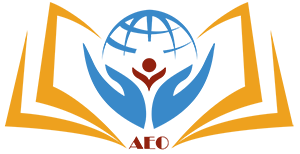
Afghanistan Economic Outlook
February 2024
Afghanistan Economic Outlook, is a creative initiative of the Afghanistan Economic and Legal Studies Organization (AELSO) which reflects most important & the latest economic events that happened during a month in Afghanistan.
By reading this economic newsletter, that has designed in three languages (Pashto, Dari & English), you can get a wider overview of Afghanistan’s economic situation.
Precious Stones Exported Worth $2 Million
 The Ministry of Industry and Commerce announced that more than $2 million in precious stones have been exported to neighboring countries in the past year.
The Ministry of Industry and Commerce announced that more than $2 million in precious stones have been exported to neighboring countries in the past year.
The spokesman of the Ministry of Industry and Commerce, Abdul Salam Jawad, said that Pakistan, China, Uzbekistan, Switzerland, the United Arab Emirates and Germany have been important buyers of Afghanistan’s precious stones.
Jawad said: “Afghanistan has exported precious and semi-precious stones worth more than $2.2 million dollars to the countries of Pakistan, China, Kazakhstan, Switzerland, Germany, United Arab Emirates, Thailand, Iran, India and Russia during the three quarters of 1402 (solar year).”
Khalid, who has been selling precious stones in the antique alley of Kabul for fifteen years, said that he has more than 100 different types of stones and these stones are from domestic and foreign mines.
Khalid told TOLOnews: “There are some stones that are from our own country, and we import some other stones from neighboring countries such as Iran, Yemen, Iraq, Egypt–each of them has their own fans.”
At the same time, a number of precious stone sellers expressed their concern about the decrease of their sales and want the Islamic Emirate to hold exhibitions for precious stones.
“Our request from the Islamic Emirate is to hold exhibitions, to promote and advance people’s work, and to provide us with work opportunities, so that we can freely export and re-import our lapis lazuli and promote our work,” said Ekramuddin, precious stone seller.
“Currently, we don’t have many sales, but in the summer season our sales are good a little,” said Fawad Ahmadi, a precious stones seller.
Afghanistan’s precious stones have a good market in other countries, but the processing of these stones inside the country is a challenge.
Turkish Investors Interested in Investment in Afghanistan
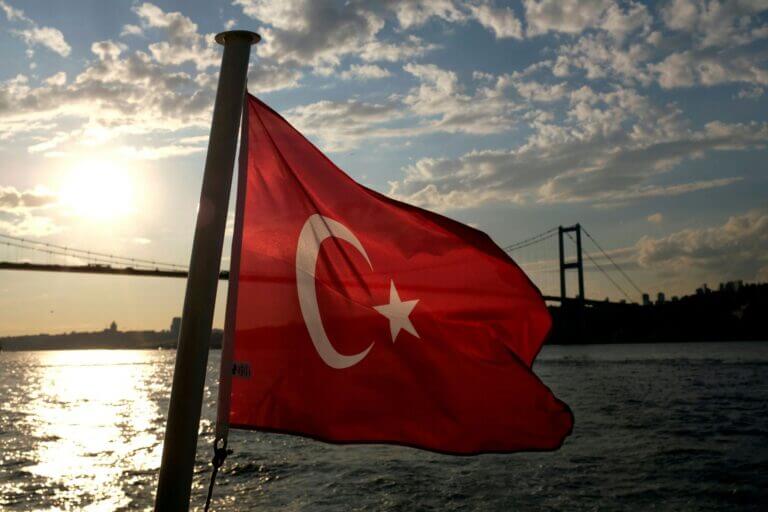 The Ministry of Commerce and Industry said that Turkish businesspeople have shown interest in investing in electric power, airports and industrial parks for Afghanistan.
The Ministry of Commerce and Industry said that Turkish businesspeople have shown interest in investing in electric power, airports and industrial parks for Afghanistan.
According to the officials in the MoCI, the deputy of the ministry Qudratullah Jamal, in a meeting with Turkish investors, said that commerce and industry should not be sacrificed in politics and that investment by Turkish investors will strengthen bilateral trade relations between the two countries.
“In the meeting, Turkish investors have shown interest in investing in Afghanistan’s electricity, airports and industrial parks and commercial townships,” said Abdul Salaam Jawad Akhundzada, the spokesman for the Ministry of Commerce and Industry.
Political analysts said that recognition of the Islamic Emirate and the world’s engagement with the Afghan government will help increase foreign investment and implementation of infrastructure and development projects in the country.
“The biggest challenge that has prevented investments in the country is the lack of international recognition of the Islamic Emirate. I believe that recognition and the world’s engagement with Afghanistan will attract investment to Afghanistan because the country is a good place for investment,” said Nasir Reshtia, a political analyst.
Meanwhile, authorities of the Afghanistan Chamber of Commerce and Investment (ACCA) said that to expand Afghanistan’s commerce with European countries, there is a need to increase trade with Turkiye.
“We should focus on resolving our transport and transit problems, then we will be able to connect with Europe through Turkiye,” said Mirwais Hotak, head of the board of directors at ACCA.
Earlier the Ministry of Commerce and Industry said that Afghanistan had $100 million worth of trade with Turkiye in 2023, with exports making up $23 million.
Kabul Responds to Reports of China's Need for Afghan Lithium, Copper
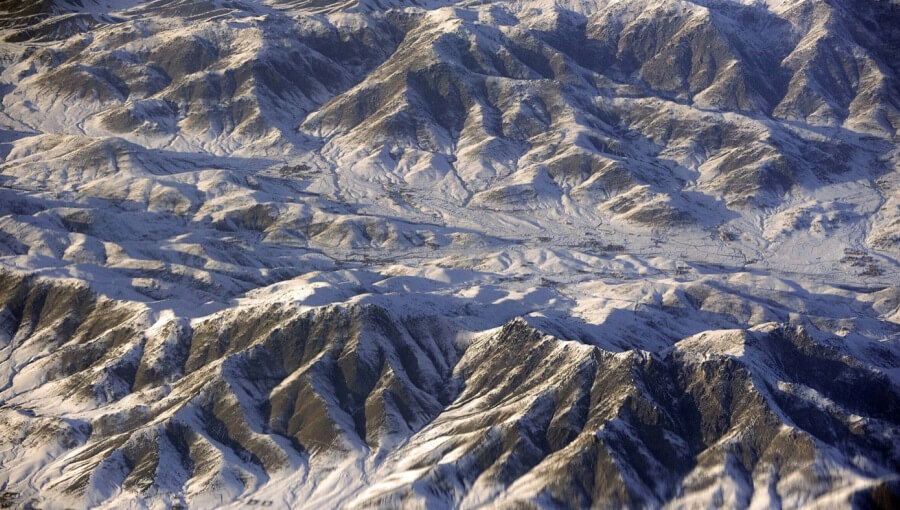 An op-ed published on region-focused news outlet EurAsian Times, which cited other news reports, said that China needs Afghanistan’s lithium and copper mines to dominate the supply chains of components needed to make electric vehicle batteries and smartphones.
An op-ed published on region-focused news outlet EurAsian Times, which cited other news reports, said that China needs Afghanistan’s lithium and copper mines to dominate the supply chains of components needed to make electric vehicle batteries and smartphones.
According to the op-ed, since the Islamic Emirate came to power, China has established positive political and economical interactions with the country.
The Ministry of Mines and Petroleum said that lithium and copper are the most important and strategic mines of Afghanistan and in addition to Chinese investors, other countries also expressed their interest to take these contracts.
The spokesman for the Ministry of Mines and Petroleum, Homayoun Afghan, said: “In the lithium sector, many companies, including the Chinese company, came and showed their interest in this sector, but no contract has been signed with anyone yet.”
Meanwhile, the officials of the country’s economic and trade sector also said the economic and trade relations between China and Afghanistan are developing.
Abdul Latif Nazari, the deputy minister of Economy, said: “The Islamic Emirate has extensive economic and trade relations with countries — including China — based on the country’s national interests. Our effort is to consider the economic growth and development of the country in our economic relations.”
Economic analysts said the country’s mines are the nation’s capital. Analysts said that China has a serious need for Afghanistan’s mines.
“China, as a large and powerful economic country in the world with its work capacities, plays a very big role in every country and every region it interacts with,” said Qutbuddin Yaqubi, an economic analyst.
According to information provided to TOLOnews, the Ministry of Mines and Petroleum has currently signed exploration and extraction contracts with foreign companies for the exploration and extraction of three large oil mines in the Qashqari Block of the Amu river and the Herat iron mine.
Efforts Underway to Standardize Airports
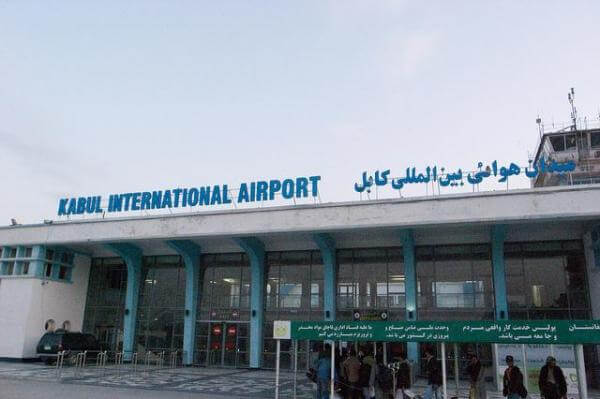 The Ministry of Transport and Civil Aviation said that they are working to standardize Afghanistan’s airports on the international level.
The Ministry of Transport and Civil Aviation said that they are working to standardize Afghanistan’s airports on the international level.
Officials at the ministry said that 27 airports are currently operating in the country, and five of them are international.
They said that they rebuilt some airports including Kabul International Airport after the takeover of the Islamic Emirate.
“After the withdrawal of US and NATO, Afghanistan’s airports were crippled, all airports were damaged, their equipment was inoperative. We were able to equip the airports,” said Imamudin Ahmadi, spokesperson for the Ministry of Transport and Civil Aviation.
Meanwhile, former officials of the ministry said that for international flights by international airlines, the airports should be in line with global standards.
“Infrastructure is very important particularly in airports. Having standard international airports especially in big provinces is a need,” said Imamudin Warimach, former deputy minister of Transport and Civil Aviation.
Officials of Afghanistan Chamber of Commerce and Investment (ACCI) said that the problems of getting regional and other countries’ visas should be resolved to increase international flights.
“India is not giving us visas. China, Russia, UAE and some Central Asian countries also do not give us visas. There are also traders who need to travel abroad,” said Khan Jan Alokozay, a member of the board of ACCI.
Earlier, Fly Dubai and Air Arabia restarted their flights to Afghanistan.
Over $1.8 Billion in Trade with Iran in Past 11 Months
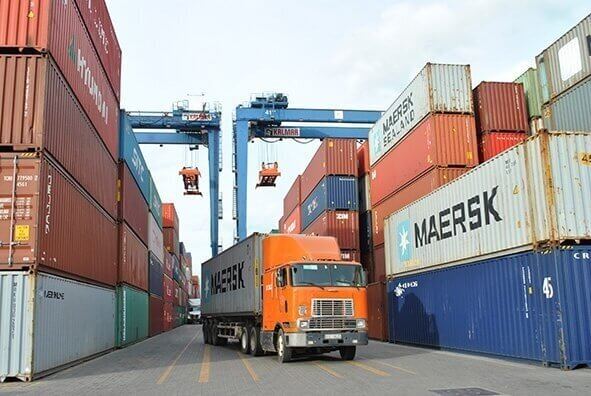 The Ministry of Industry and Commerce said that in the past 11 months of the current year 1402 (solar year), trade has been done with Iran worth $1.8 billion dollars.
The Ministry of Industry and Commerce said that in the past 11 months of the current year 1402 (solar year), trade has been done with Iran worth $1.8 billion dollars.
The officials of this ministry gave statistics that out of this, only nearly $30 million are exports and the rest are imports from this country.
According to them, the most exported items are cotton, raisins, almonds, sesame and watermelon seeds.
Nooruddin Azizi, acting minister of Industry and Commerce, in a meeting with Abolfazl Chamandi, the Iran’s deputy economic affairs coordinator of Khorasan Razavi Governorate, discussed expanding trade relations between the two countries.
The spokesman of the Ministry of Industry and Commerce, Akhundzada Abdul Salam Jawad, said: “In this meeting, Abolfazl Chamandi, the deputy economic affairs coordinator of Khorasan Razavi Governorate, said that they have come to provide information on the progress of activities regarding the agreements that were made between the two countries during the recent visit of the deputy Prime Minister for Economic Affairs, Mullah Abdul Ghani Baradar, and the leadership of the Ministry of Industry and Commerce of this country, and we are moving step by step to implement the agreements. Razavi described the trade relations between the two countries as growing.”
Meanwhile, the Afghanistan Chamber of Commerce and Investment (ACCI) said that the high customs tariffs of Iran is one of the reasons for a decrease in exports to that country and serious attention must b paid to the issue.
Mirwais Hotak, head of the board of directors at ACCI, said: “If we have a memorandum of agreement with them and the preferential tariff is taken into consideration and the problems we have in transit, in transportation and in customs, it is clear that our exports to Iran will increase.”
At the same time, a number of business people said that in addition to increasing trade with Iran, there is a need to facilitate transit through Iran so that business people can develop their business with India and China through Chabahar port.
“We want the Islamic Emirate to talk to India and Iran to activate the Chabahar port soon, and through the Chabahar port we can build our way to Asia, Europe and China,” Zalmay Azimi, a businessman told TOLOnews.
Meanwhile, the acting Minister of Agriculture, Irrigation, and Livestock has discussed Iran’s investments in livestock, agriculture, irrigation and horticulture sectors in a meeting with the deputy ambassador of Iran’s embassy in Kabul, and the deputy economic affairs coordinator of Khorasan Razavi Governorate.
Mesbahuddin Mustaeen, the spokesperson of the ministry, said: “In this meeting, the Iranian delegation discussed work and investment in Afghanistan and increasing Iranian investment in the country.”
Earlier, a delegation from Iran came to Afghanistan and discussed Iran’s investments in Afghanistan, trade development, and the establishment of Afghanistan-Iran Joint Chamber of Commerce with the officials of the Islamic Emirate.
Afghanistan’s fruits showcased at Dubai’s Gulfood Exhibition
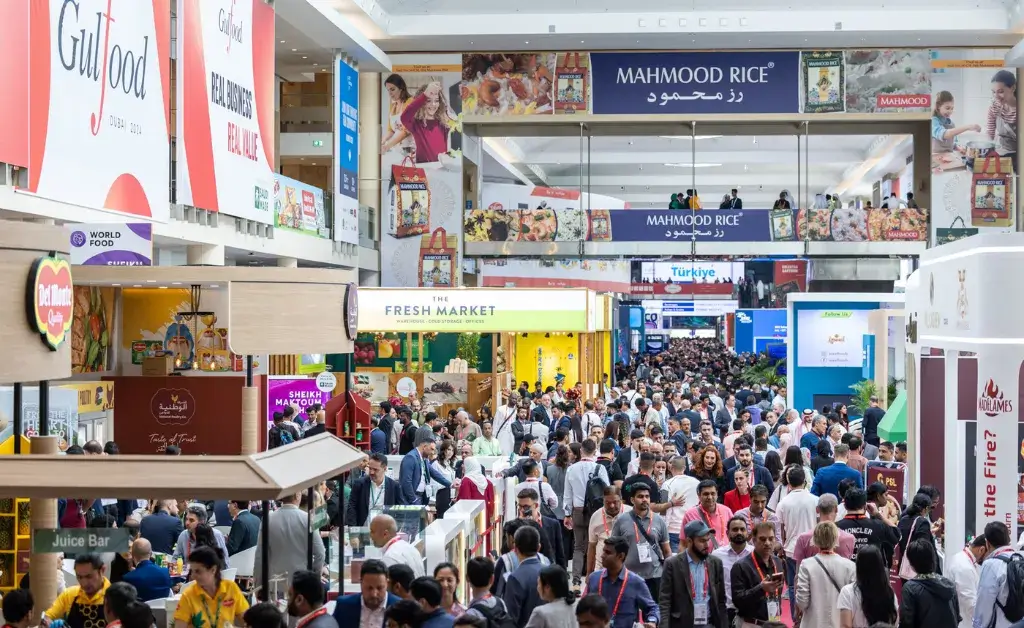 Afghanistan is displaying its products, especially dry fruits, at the Gulfood exhibition in Dubai, attracting significant attention from visitors.
Afghanistan is displaying its products, especially dry fruits, at the Gulfood exhibition in Dubai, attracting significant attention from visitors.
Afghanistan’s investors have brought a variety of dry fruits to the exhibition, highlighting the country’s export potential.
“Today is the fourth day. As you see, many people interested in Afghanistan’s dry fruits have attended Gulfood, showing their interest in our products,” Hamayon Azizi, a participant at the exhibition, said.
Gulfood is one of the major exhibitions at both regional and international levels, providing a platform for showcasing and expanding international markets for products like Afghanistan’s dry fruits, which are among the country’s main export items.
Afghanistan's Security, Roads, Ports Facilitate Intl Transit
 The defacto government said that they have provided facilities for transit trucks of neighboring and regional countries.
The defacto government said that they have provided facilities for transit trucks of neighboring and regional countries.
The spokesperson for the caretaker Afghan government told TOLOnews that the security and operations at the ports and highways are the main facilitators for transit trucks to drive inside Afghanistan.
“All the highways that connect Afghanistan with the region have been secure and transit trucks can easily reach their destinations. Second, at all ports of the country, facilities have been provided for transit trucks. Third, traffic is properly managed by teams if problems occur. Afghanistan is now a good direction for transit,” said Zabiullah Mujahid, the spokesman for the defacto government.
In the meantime, officials at the Afghanistan Chamber of Commerce and Investment (ACCI) said that being landlocked and lacking extended railways costs the Afghan traders large amounts of money to import goods.
A member of the board of ACCI, Khan Jan Alokozay, said that existing issues at Karachi port is one of the biggest challenges for Afghan traders in terms of transit.
“Our transit imports are too expensive. For example, if we import from Russia and China, we are doing it through Kazakhstan, Uzbekistan, Turkmenistan and other countries, which is very costly. The ports, Chabahar and Bandar Abbas have their own problems. Through Pakistan’s Karachi, we cannot call it a transit for being too expensive,” said Khan Jan Alokozay, a boardmember of the ACCI.
Meanwhile, the Ministry of Finance said that transit is a key source of income for Afghanistan which injects direct and indirect revenue to the country.
“Transit is one of the important parts of trade in Afghanistan, which generates direct and indirect revenue to the government’s treasury. Transit creates employment because cars operate which need oil. We are trying to provide further facilities for transit,” said Ahmad Wali Haqmal, spokesman for the ministry of finance.
According to ACCI, 500 loaded trucks of Afghan traders worth 1.5 billion USD are still stuck in Karachi port.
World Bank allocates $300 million aid to Afghanistan, away from Taliban’s reach

According to the report, The World Bank will allocate around $300 million in aid to Afghanistan, “away from the Taliban’s reach.
According to the French News Agency, The World Bank’s executive board has approved a new approach to “support the people of Afghanistan.
This is the first time since the Taliban took over the country that the World Bank is allocating money to Afghanistan.
Under the new approach referred to as “Approach 3.0,” the World Bank will revive infrastructure projects that were halted after the Taliban takeover of Afghanistan.
A World Bank spokesperson told the French news agency that based on the approach known as the “International Development Association,” which supports the poorest countries, $300 million will be allocated to Afghanistan in the next 15 months.
The World Bank, in a statement about its new approach to Afghanistan, said that since August 2021, it has provided over $1.5 billion to the Afghanistan Reconstruction Trust Fund, covering approximately 25 million people.
According to the bank, the new funds will be provided to Afghanistan as per the request of supporters of the Afghanistan Reconstruction Trust Fund. The World Bank statement does not specify the amount of the new contributions.
According to the statement, the World Bank’s new approach prioritizes women in project implementation, ensuring that projects are executed by and for women.
Resumption of “CASA-1000 Project”
The World Bank also announced in a part of its statement that the work on the Central Asia-South Asia Electricity Transmission and Trade Project in Afghanistan is being resumed.
The bank announced that the resumption of the project, which involves three countries – Kyrgyzstan, Pakistan, and Tajikistan, is at their request. Additionally, the statement noted that work on this project in three other countries is nearing completion.
The CASA-1000 project, valued at $1.2 billion, is said to transmit clean energy from Tajikistan and Kyrgyzstan through Afghanistan to Pakistan.
The World Bank, by announcing the resumption of work on this project, stated that all construction payments and revenues in the future will be managed outside of Afghanistan and will remain beyond the reach of the Taliban.
Acting Minister of Mines and Petroleum meets Russian investor
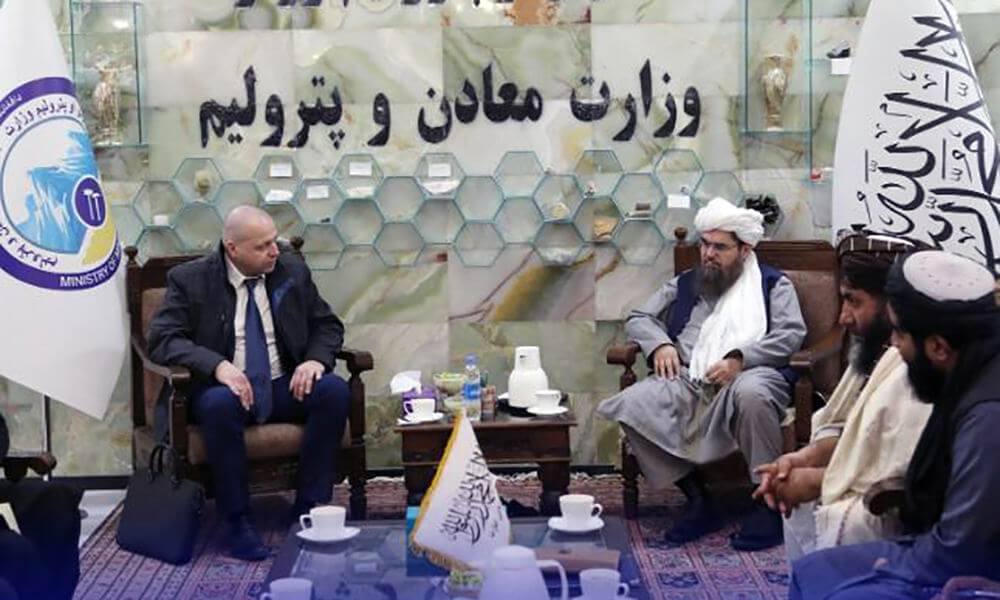 Shahabuddin Delawar, Acting Minister of Mines and Petroleum, met with the Russian investor on Sunday in his office and discusses investment opportunities in Afghanistan.
Shahabuddin Delawar, Acting Minister of Mines and Petroleum, met with the Russian investor on Sunday in his office and discusses investment opportunities in Afghanistan.
The Ministry of Mines and Petroleum says that in this meeting, the Russian investor, while providing information about the company’s work experience and activities, said: “Our company has 120 years of work experience in the countries of Iran, Iraq, Syria and Tajikistan with advanced and modern equipment that we have, we are ready to cooperate and start work in Afghanistan.”
In this meeting, he also talked about the production of 150 megawatts of electricity from garbage and said that our company is ready to cooperate and work on solving the problem of garbage and generating electricity from it.
The Russian company also gave information about their facilities and equipment in the oil and gas sector and electricity generation from gas, expressed their interest in investing in the oil and gas sector of Afghanistan and requested the support and cooperation of the Ministry of Mines and Petroleum.
The Ministry of Mines and Petroleum stated that the acting minister welcomed their plans and ideas in the country’s oil and gas sectors and electricity generation from waste, adding: “Afghanistan enjoys overall security and there is a suitable environment for foreign businessmen to invest.”
According to the Acting Minister of Mines and Petroleum, businessmen can invest in a safe, transparent and corruption-free environment, and the leadership of the Ministry of Mines and Petroleum is also ready to cooperate in this field.
Recent Afghanistan Economic Outlook
Join to our Newsletter
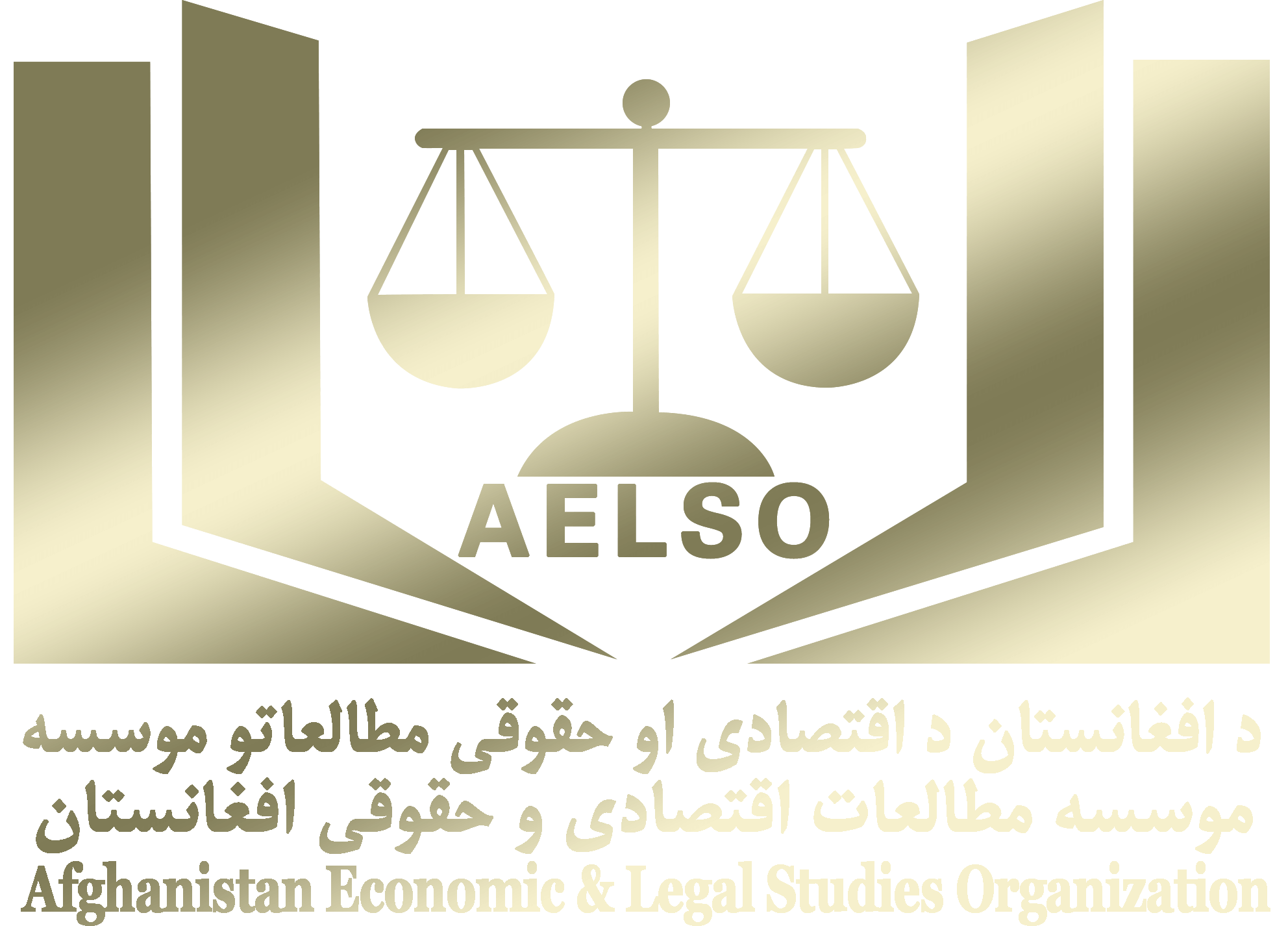
Advancing the Ideas for a Peaceful and Prosperous Afghanistan
© 2023 Copyright Afghanistan Economic & Legal Studies Organization.